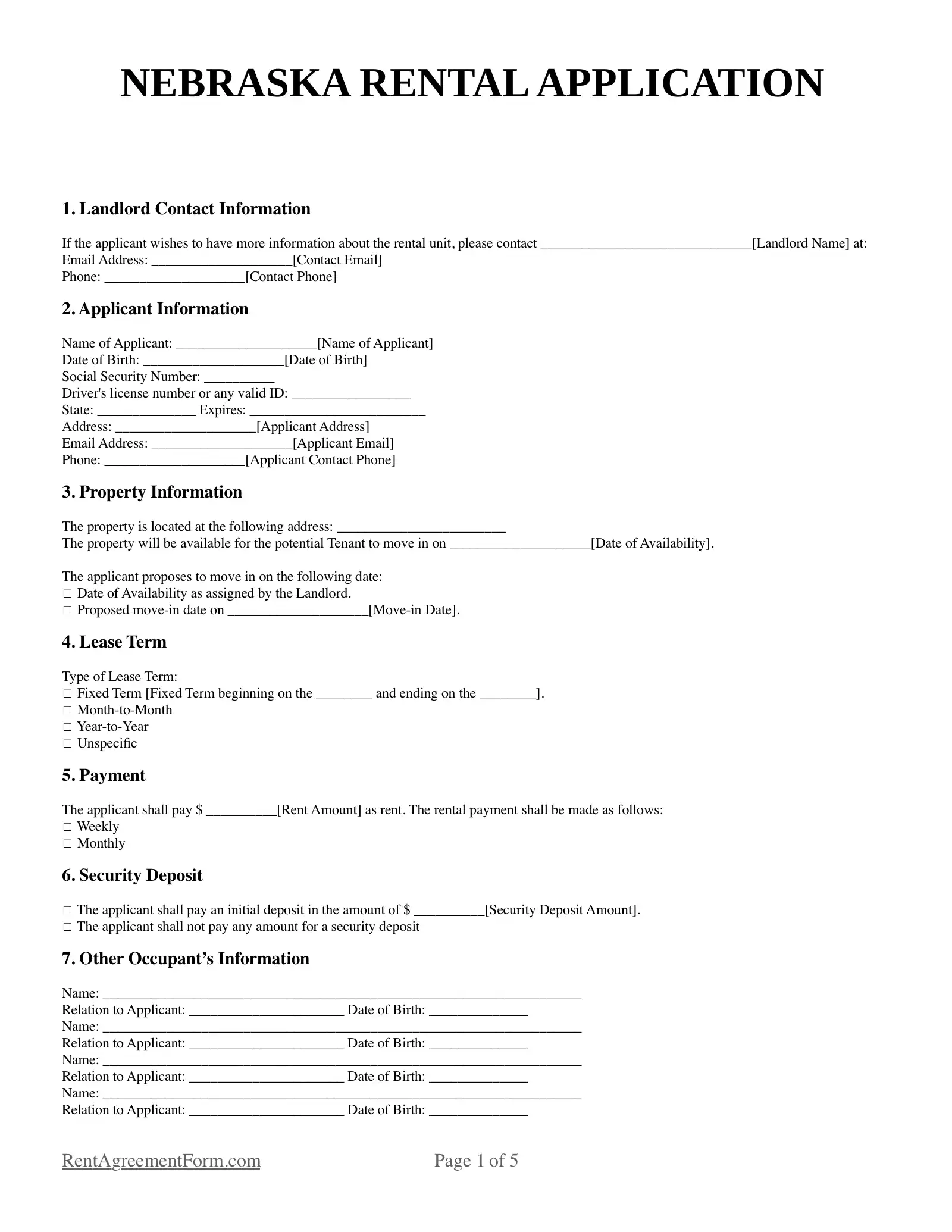Nebraska Rental Application Form
The state of Nebraska offers beautiful, snowy landscapes with towering dunes in its sandhills. It’s also home to a community of incredibly friendly people, great schools, and affordable real estate.
If you’re looking to rent a place in Nebraska, you’ll need to fill out a rental application form. The rental application form lets a landlord know that you are interested in leasing their property. Your application will include important information that the landlord needs to consider for your lease.
In addition to expressing your interest, a Nebraska rental application form gives your prospective landlord permission to conduct a background check so they can evaluate your application. The background check will look into your credit score, credit history, employment as well as your eviction record and criminal history if you have them. The landlord can also call your listed references to inquire about you as a tenant.
This allows landlords to determine who would make good tenants for their properties. During the selection process, landlords must adhere to the provisions stipulated by the Federal Fair Housing Act. According to the statute, landlords cannot discriminate against prospective tenants based on their skin color, gender, religion, familial status, or disability (Federal Fair Housing Act).

Nebraska Rental Application Fees
When you submit a rental application form, you will also have to pay a rental application fee. The state of Nebraska does not dictate a minimum or maximum amount for the application fee. It should also be noted that this fee will not be refunded to you even if your application gets rejected.
The rental application fee is used to fund the background check that will be conducted after your submission of the rental application form. To perform the background check, the landlord may need to pay administrative fees, hire third-party agencies, or use certain software to gather information about you.
Security Deposits for Nebraska Rental Applications
According to Nebraska law, security deposits cannot be worth more than one month’s rent. If a tenant has pets, the landlord may charge an additional pet deposit fee. A pet deposit cannot exceed one-quarter of one month's rent.
The security deposit is crucial because it protects the landlord in the event that the tenant is unable to pay rent. It can also be used by the landlord in case the property suffers undue damage during the tenant’s lease (NE Code § 76-1416).